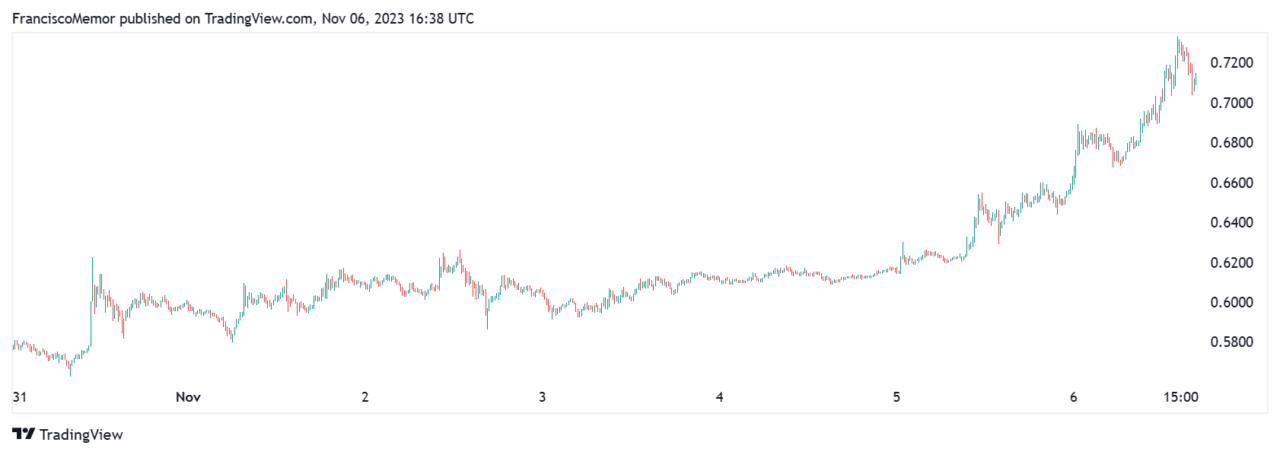The price of the native token of the XRP Ledger is up more than 7% over the last 24-hour period and more than 27% over the past week, as the cryptocurrency’s price has recently surged over a number of Ripple-related developments.
According to available market data, XRP is now trading at $0.712 after its recent surge, which brought its 6-month returns to a whopping 148.5%. The surge has helped XRP flip Binance’s BNB token to become the fourth-largest digital asset by market capitalization.
Data suggests that the XRP price surge was mostly due to spot trading, as the futures market saw only $4.4 million worth of XRP contracts liquidated. While there isn’t a clear catalyst behind the surge, it comes after the National Bank of Georgia (NBG) has embarked on a pioneering journey into the digital currency space by selecting Ripple, a prominent enterprise blockchain and crypto solutions provider, as its partner for the Digital Lari pilot project.

This collaboration is set to explore the capabilities of Ripple’s Central Bank Digital Currency (CBDC) platform, assessing its potential to revolutionize the public sector, business transactions, and retail usage.
Ripple, it’s worth noting, is a major player in the XRP space and a company that was created back in 2012 as OpenCoin, and was gifted 80 billion XRP at the time, a majority of which were put into escrow.
As CryptoGlobe reported, the Dubai International Financial Centre (DIFC), a premier financial hub in the Middle East, has recently expanded its virtual assets framework to include XRP, which could also be helping boost the cryptocurrency’s price.
Notably, historical data suggests XRP could soar by an estimated 77% during the month of November, as according to historical data the cryptocurrency’s price has surged significantly in November, with a record 531% rise in November 2013.
Over the past five years, November has predominantly been unprofitable for XRP, except for 2020 when it saw a significant 178.3% gain. This suggests that the value of XRP could soon surge based on its long-term historical data for November, or it could dip following last five years’ pattern.
Featured image via Unsplash.









